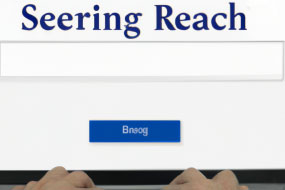
SEO is an integral part of any online marketing strategy. However, merely creating an SEO plan is not enough. You need to track and measure its success to understand how it is contributing to your business goals. In this article, we will discuss various metrics and techniques that can help you measure the success of your SEO strategy.
Set SMART Goals
The first and foremost step to measure the success of your SEO strategy is to set SMART goals. SMART stands for Specific, Measurable, Attainable, Relevant, and Time-bound. Your SEO goals should align with your business objectives and should be measurable, such as increasing organic traffic by X% or getting X number of backlinks within a specific timeframe.
Track Your Organic Traffic
Organic traffic is the traffic that comes to your website through search engines. It is one of the most critical metrics to measure the success of your SEO strategy. Use tools like Google Analytics to track your organic traffic and identify trends over time. Also, monitor the bounce rate, time spent on a page, and the number of pages per session to understand the quality of traffic.
Monitor Your Keyword Rankings
Keywords are the backbone of your SEO strategy. Monitor your keyword rankings to understand if your SEO efforts are helping you rank higher for relevant search terms. Tools like SEMrush, Ahrefs, and Moz can help you track your keyword rankings, identify opportunities for improvement, and keep an eye on your competitors.
Analyze Your Backlinks
Backlinks are the links that point to your website from other websites. They are an essential factor in determining your website's authority and credibility. Use tools like SEMrush, Ahrefs, and Majestic to analyze your backlink profile, identify the number of Backlinks, referring domains, and the quality of backlinks. A strong backlink profile can significantly impact your search rankings.
Check Your Click-Through Rates
Click-through rate (CTR) is the percentage of users who clicked on your website's link from the search engine results pages (SERPs). Use Google Search Console to track your CTR for different keywords, pages, and devices. Low CTRs may indicate poor metadata, unappealing titles, or irrelevant content. It may be worth optimizing your titles and metadata to improve CTRs.
Measure Your Conversions
Ultimately, the success of your SEO strategy depends on how it contributes to your business goals. Therefore, it is essential to measure the conversions generated by your SEO efforts. Use Google Analytics to track conversions, such as form submissions, purchases, and sign-ups, and identify which pages, keywords, and channels are driving the most conversions.
















